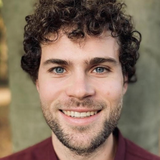Watch the recording here.
It gets ever more widely recognized: AI poses existential risks. Tonight leading voices from the Netherlands and beyond will give their views on AI existential risk and how to deal with it. Connor Leahy, CEO of London-based AI Safety company Conjecture, is one of those trying to mitigate these risks. He will share with us why he thinks AI is an existential risk and what his company Conjecture is trying to do to mitigate it. After his opening, a panel with prominent Dutch politicians, AI Ethics and AI Policy experts, and one of the first AI Safety activists, will continue to talk about the risks of AI, and what to do about them in both an international and a Dutch political context. We are extremely excited to organise our second evening about a topic that keeps getting more and more relevant!
About the speakers
Connor Leahy is CEO and founder of Conjecture, a London-based company aimed at making AI existentially safe by doing technical research. Before founding Conjecture, Connor partially reverse-engineered GPT-2, a precursor to the models behind ChatGPT, from his bedroom. He is known to speak frankly about difficult questions in AI and has been invited to comment on AI existential risk by CNN and many other media outlets. Connor Leahy will participate remotely.
Hind Dekker-Abdulaziz is a Member of Parliament for D66. She is a member of the digital affairs committee and recently filed a parliamentary motion asking for more AI Safety scientific research, which was unanimously accepted.
Mark Brakel is Director of Policy at the Future of Life Institute and has extensive experience in practical policy-making at the EU level, notably with the AI Act.
Joep Meindertsma is one of the founders of PauseAI, a movement campaigning for an AI Pause. Their protests in Brussels and London were covered by Politico, TIME, Euronews, and the BBC, and a Dutch protest is upcoming. Before becoming a fulltime activist, Joep was the CEO of a Dutch IT company.
Watch the livestream via the YouTube channel of Existential Risk Observatory:









